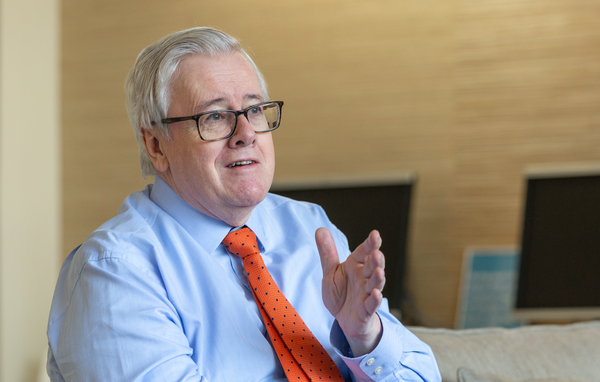ChemEng student start-up wins Imperial WE Innovate prize
Green Beads, an Imperial student start-up focussing on bio-alternatives to micro plastics, bags first prize at the WE Innovate final
Green Beads, founded by Chemical Engineering PhD student Lu Ai, won the top £15,000 prize in the WE Innovate final last month. WE Innovate, a pre-accelerator programme run by Imperial Enterprise Lab, was created to encourage women to take leadership positions, by helping them develop their business ideas.
Green Beads’ mission is to provide a biodegradable, biocompatible and non-toxic algae-based alternative to microplastics, found in many of our everyday products, from detergents to cosmetics. Microplastics are pieces of plastic smaller than 5 millimetres, and are impossible to remove from our environment, as current sewage treatment plants have not been designed to filter them from wastewater. Additionally, those tiny plastic beads sorb toxic chemicals, and end up being eaten by many animals, from planktons, earthworms to humans, thus threatening both human health and ecosystems.
These microplastics are ubiquitous with just 25mL of shower gel containing up to 40,000 plastic particles, all of which end up being flushed into the sea.
Unfortunately, this whole problem is far from being resolved. Since the 1950s, plastic production has increased exponentially, from 2 million metric tons annually to more than 300 million metric tons today. And things are not going to get any better, with a projected 33 billion metric tons being produced each year by 2050. Some countries have started to engage with the issue: in the UK, a national prohibition on plastic microbeads was introduced in 2018, but the ban fails to take into consideration many products, including sun-cream, lipstick and paints. In China, a ban on adding microplastics to personal care products was implemented this May.
Green Beads aims to make both the production process and final products sustainable. The production of algae does not compete with tradition farming on arable lands as algae can be grown in brakish water, and their production only uses green chemicals. The beads can be customised to different sizes and colours, with varying biochemical properties, making them easy to be incorporated in a wide range of products. Their production cost is also lower than that of other eco-friendly microbeads, such as cellulose or protein beads.
The algae microbeads therefore appear very promising. When asked about their future plans, the team members said that they are aiming to “finish all the safety and microbiological tests of our first-generation green beads”, and “further develop our technologies to enable our beads to carry nutrient ingredients using encapsulating technology”. The team is planning on attending the AIChE annual meeting in Boston, as well as the Great Exhibition Road Festival in London. Hopefully we will find their beads in our shower gels soon.






